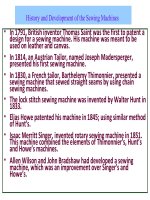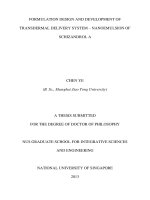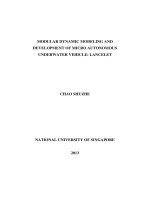Unit 1THE BEGINNING AND DEVELOPMENT OF ESP
Bạn đang xem bản rút gọn của tài liệu. Xem và tải ngay bản đầy đủ của tài liệu tại đây (130.82 KB, 12 trang )
<span class='text_page_counter'>(1)</span>THE BEGINNING AND DEVELOPMENT OF ESP.
<span class='text_page_counter'>(2)</span> WHAT IS ESP? I/ THE ORIGIN OF ESP 1- THE DEMAND OF THE POST- WORLD WAR - enormous and unprecedented expansion of scientific, technical and economic activities on an international scale; - domination of technology and commerce the role of English; - mass of people learn English, not for pleasure, but because English is the key;.
<span class='text_page_counter'>(3)</span> The Origin of ESP (Con.t) - most importantly, they know why they need English. - The Oil Crisis of 70' time and money constraints cost effective courses with clearly defined goals ESP courses tailored to specific needs..
<span class='text_page_counter'>(4)</span> The Origin of ESP (Con.t) 2- A REVOLUTION IN LINGUISTICS - Traditionally: the focus was to describe the rules of English usage, the formal features of English (grammar); - Now: the focus was to discover the ways in which English is actually used in real communication..
<span class='text_page_counter'>(5)</span> The Origin of ESP (Con.t) - The English we speak and write vary considerably, in a number of different ways, from one context to the another it should be possible to determine the features of specific situations those features become the ESP course . - "Tell me what you need English for and I will tell you the English that you need".
<span class='text_page_counter'>(6)</span> The Origin of ESP (Con.t) 3- A FOCUS ON THE LEARNERS - New development in educational psychology ESP - Emphasis on the central importance of learners and their attitudes to learning ; - Learners have different needs and interests influence on their motivation to learn and the effectiveness of learning ESP RELEVANCE TO NEEDS & INTERESTS.
<span class='text_page_counter'>(7)</span> II/THE DEVELOPMENT OF ESP ESP IN THE WORLD HAS DEVELOPED THROUGH 5 PHASES. 1- The concept of special language: register analysis 2- Beyond the sentence: rhetorical or discourse analysis 3- Target situation analysis 4- Skills and strategies 5- A learning-centered approach.
<span class='text_page_counter'>(8)</span> III/ WHAT IS ESP? ESP IS AN APPROACH, NOT A PRODUCT ESP is not a matter of teaching "specialized varieties" of English ESP is not just a matter of science words and grammar for scientists, hotel words and grammar for hotel staff e.t.c the root of the tree is still English language teaching and English language learning - and communication..
<span class='text_page_counter'>(9)</span> III/ WHAT IS ESP? . . " There is … no such thing as an ESP methodology, merely methodologies that have been applied in ESP classroom" Hutchinson and Water (1987) " ESP…is an approach to language learning, which is based on leaner need. The foundation of all ESP is the simple question: Why does this learner need to learn a foreign language?“ Hutchinson and Water (1987).
<span class='text_page_counter'>(10)</span> III/ WHAT IS ESP? . " ESP…is an approach to language learning, which is based on leaner need. The foundation of all ESP is the simple question: Why does this learner need to learn a foreign language?" Hutchinson and Water (1987).
<span class='text_page_counter'>(11)</span> IV/ SOME CRITERIA OF ESP . Goal –directed Based on needs analysis. V/CHARACTERISTICS OF ESP Specific time period time constraints Adult learners, usually not beginners Not identical student (mixed class) Specialist language ???.
<span class='text_page_counter'>(12)</span>
<span class='text_page_counter'>(13)</span>









